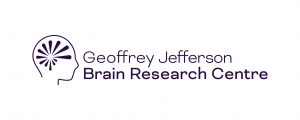How Communication and Relationships Drive the Stroke Rehabilitation Research Collaboration
We interviewed Dr Emma Patchwood from the Stroke Rehabilitation Research Collaboration. Here, Emma explains how cultivating interpersonal relationships and employing clear communication contributes to the group’s effectiveness.
Could you tell us about your group?
“The Stroke Rehabilitation Research Collaboration Group (SRRCG) is led by Prof Audrey Bowen, and comprises a diverse assembly of individuals, including postgraduates, students, psychologists, therapists, statisticians, experts by experience (stroke survivor), academics from other Universities (MMU and Salford), and health service providers (Northern Care Alliance NHS Foundation Trust). Our group meets monthly in a hybrid format on the University of Manchester campus and discusses areas such as grant applications; paper publications; opportunities for collaboration; and practicing presentations for other events like conferences. The aim is to build a strong network of people interested in high quality stroke rehabilitation research that has the potential to make a difference to the lives of people affected by stroke.”
How are Team Research principles used within the team?
“We have been meeting as a group for several years and in the past four months we have been introduced to the University’s Team Research principles, and we were pleased to see we have been using several of these principles. For example: we don’t have fixed agendas for our meetings and welcome input from all members; especially more junior members of the team. We hope this empowers team members to guide meeting discussions. We also encourage opportunities for feedback in our meetings – the team’s diverse members promote a range of perspectives, enhancing the quality of content for presentations and funding proposals.
In instances where there are no specific agenda items, we utilise the time for general discussions and socialising. We believe that investing time in building interpersonal relationships is crucial for building relationships, to foster a supportive and secure team environment.
We have arranged an honorary contract for an expert by experience stroke survivor, who holds a crucial role in our team. This not only facilitated their skill development, but also empowered them to assume a leadership role in Patient Carer and Public Involvement and Engagement (PCPIE).”
Have you encountered any challenges working with Team Research principles?
“With such diverse expertise in one room, it can be difficult to fully understand other people’s research, so we try to use plain English, and encourage questions. This has proved to be good practice for presenting to other groups, or lay audiences.”
What are your top tips for working with Team Research principles?
- Pitching to the audience: Imagine you are describing what you do to a family member – what would you say?
- Value connection and communication for its own unmeasurable worth. Just getting together for a coffee makes people feel valued, safe, and part of the team.
- Emphasise both dedication to the team and dedication to research. This dual commitment plays a pivotal role in enhancing research quality.
Key publications/links
The SRRCG has provided support and feedback for numerous bids; co-created presentations given at national and international events; shared knowledge; and established new working collaborations; and much more. Here are some areas of work of SRRCG team members:
https://www.youtube.com/@watersstudy

